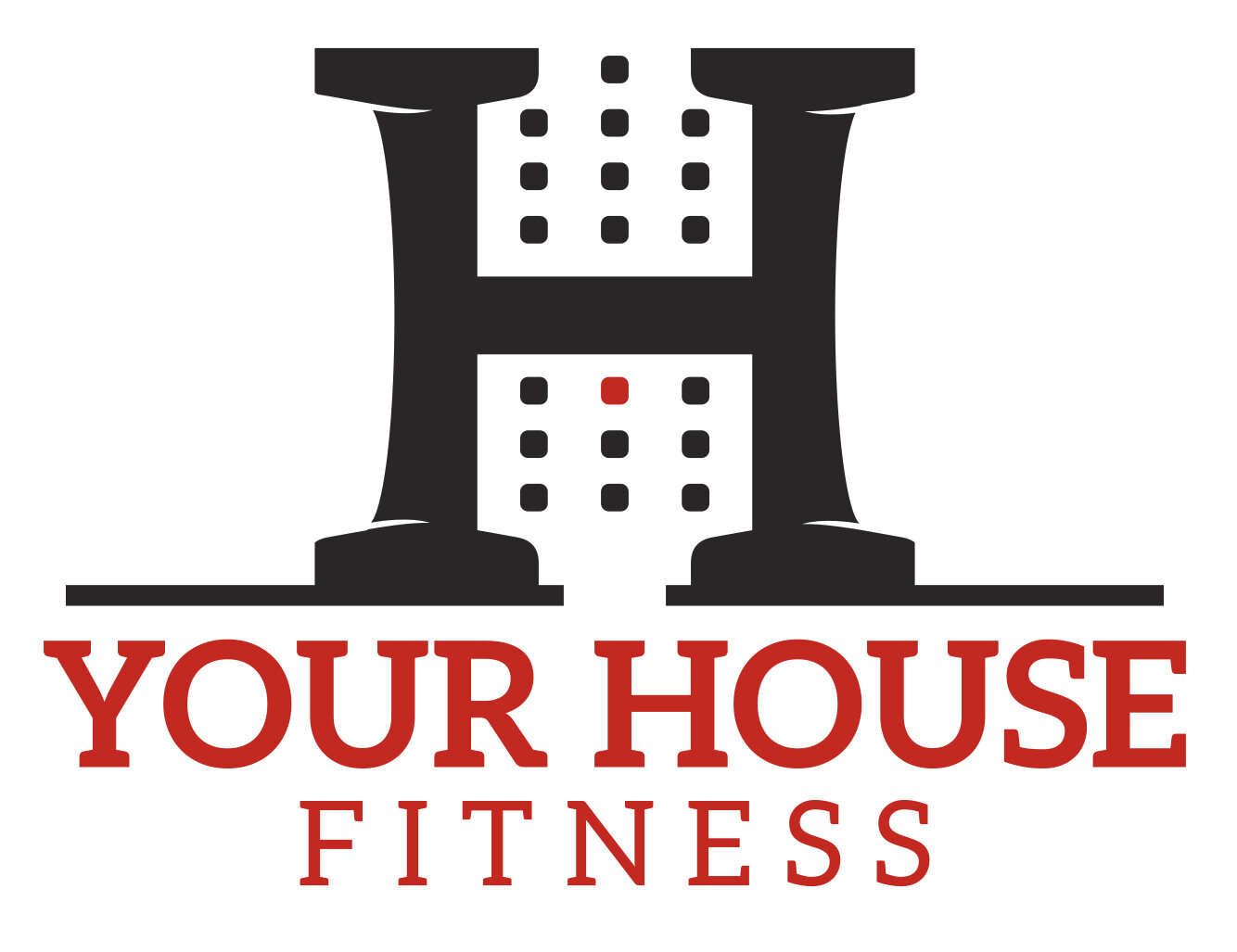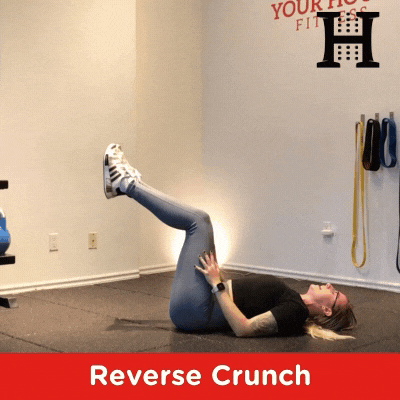Exercise Tutorial: Reverse Crunch
Table of Contents
What Is a Reverse Crunch
The Reverse Crunch is an abdominal exercise that is the opposite of the conventional crunch! In the Reverse Crunch, your torso will remain on the floor and your feet will be elevated. The Reverse Crunch is a great challenge for those who can complete the conventional crunch and will give your core an amazing workout!
How to Do a Reverse Crunch
The Reverse Crunch is an easy abdominal exercise to perform that requires no equipment. To learn how to do a Reverse Crunch, follow these simple steps.
Step 1: Lie down on the ground with your feet extended in front of you. You will be flat on your back. Your arms will be resting on the ground on either side of the body.
Step 2: Raise your legs so they come into a tabletop position. This means that the knees are bent at a 90-degree angle and the shins are parallel to the floor. The more you bend the knees, the easier the exercise will be.
Step 3: Bring your knees towards the chest and lift your hips off the floor. Go back to the original position but do not let your feet touch the floor. Repeat the movement for the required amount of reps and sets.
You have now learned how to perform the Reverse Crunch!
Reverse Crunch Form
Proper Reverse Crunch Form includes,
Your head and neck resting on the floor
No overarching of the spine
Point your feet towards the ground
Keep the knees and ankles together
Keep the palms of the hand flat on the floor
Reverse Crunch Benefits
The primary benefit of the Reverse Crunch is that it targets the entire length of the Rectus Abdominus. Additional benefits of the Reverse Crunch include that it is a bodyweight movement, it can be used in a HITT workout and it is an effective exercise to work each layer of the Abdominals.
Reverse Crunch Muscles Worked
The primary Reverse Crunch Muscle Worked is the Rectus Abdominus. Other muscles worked during the Reverse Crunch include the Internal oblique & external oblique and the Transverse Abdominus and the Iliopsoas.
Why Is The Reverse Crunch Useful
The Reverse Crunch is useful because it places less stress and strain on the head and then neck than the conventional crunch. As a result, the Reverse Crunch is a great alternative to resolve tension in the neck and still engage the Abdominals.
Reverse Crunch Variations
The Reverse Crunch has different variations that you can try, and even combine to create an Abdominal workout! Check out some Reverse Crunch variations below.
Reverse Crunch Machine
The Reverse Crunch Machine is actually a bench that you can perform the Reverse Crunch on. The bench has a decline and you will hold the top of the bench behind your head as you perform the Reverse Crunch.
Decline Reverse Crunch
The Decline Reverse Crunch is performed on a declined bench. This is the same variation that we described above that you perform on the Reverse Crunch Machine!
Reverse Crunch On Bench
The Reverse Crunch on Bench is another term for the Decline Reverse Crunch. This is a Reverse Crunch that is performed on a declined bench.
Cable Reverse Crunch
The Cable Reverse Crunch features the use of a cable machine. Attach and ankle attachments to the cable machine and set the pulley to the lowest setting. Wrap the attachment around your ankles and get into the starting position for the Reverse Crunch. Continue to perform the Reverse Crunch as usual.
Reverse Crunch With Ball
The Reverse Crunch with Ball is a Reverse Crunch that is completed while holding a small stability ball in-between your knees, or a larger stability ball in-between the lower leg. This variation will also engage the Quadriceps and Adductors of the legs.
Weighted Reverse Crunch
The Weighted Reverse Crunch is completed by holding a dumbbell in-between the ankles as you perform the Reverse Crunch. This can be an unsafe variation, so a better alternative could be using ankle weights, or performing the Cable Reverse Crunch. As well, you could hold a medicine ball will your hands above the head as you perform the Reverse Crunch.
Hanging Reverse Crunch
The Hanging Reverse Crunch is also known as a Hanging Knee Raise. To complete the Hanging Reverse Crunch, hang from a pull up bar with your ankles crossed over one another. Brace the core and draw the knees towards the chest. Lower the legs and repeat the movement.
Stability Ball Reverse Crunch
The Stability Ball Reverse Crunch is also known as the Reverse Crunch with Ball that we previously described. Place a stability ball in-between the lower legs and perform the Reverse Crunch as usual while holding the ball in place.
TRX Reverse Crunch
The TRX Reverse Crunch uses the TRX Suspension System to complete the Reverse Crunch. Place your feet in the handles of the TRX and enter a push up position. When you are ready, brace the core and bring your knees into the chest. Your arms will be straight throughout the entire movement and be in a fixed position. Return to the starting position and repeat the movement. Remember to keep the back in a neutral position!
Incline Bench Reverse Crunch
The Incline Bench Reverse Crunch is performed exactly as it sounds, on an incline bench. Hold the bench with your hands behind the head and perform the Reverse Crunch as usual.

